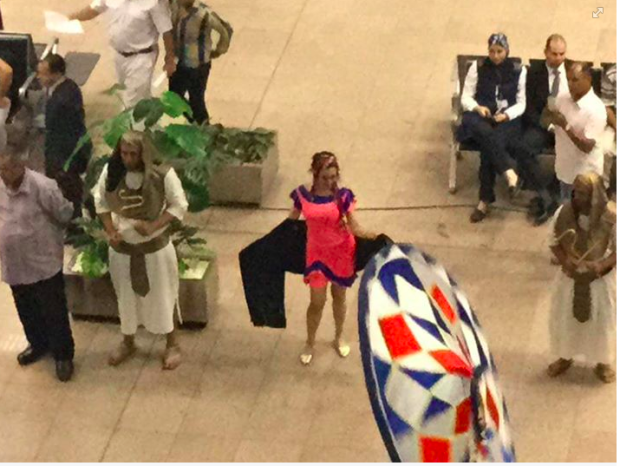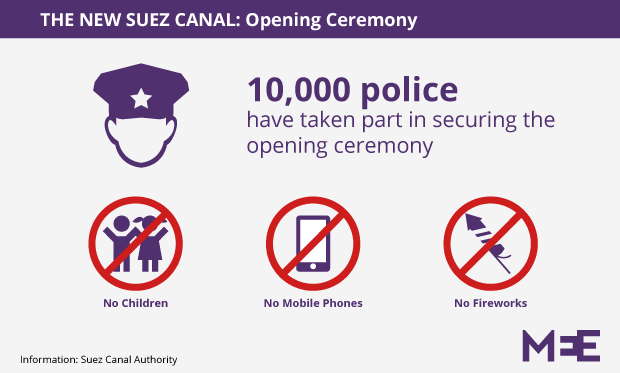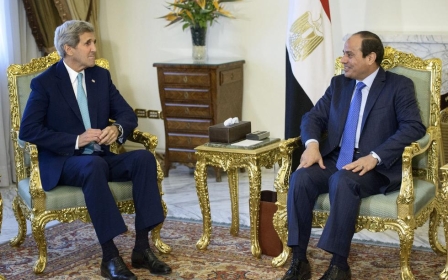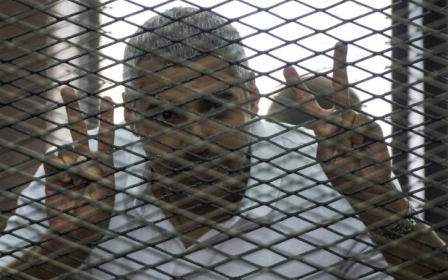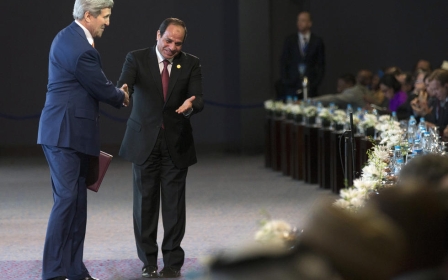Mass preparations in Egypt ahead of New Suez Canal opening
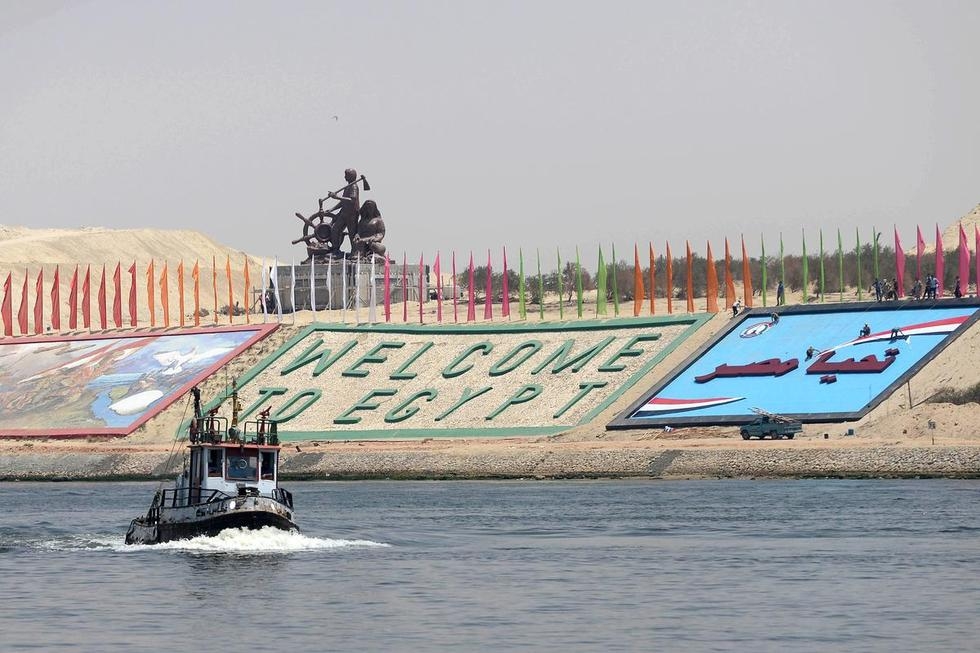
Egypt’s New Suez Canal, a mega-project aiming to boost the country’s ailing economy to the tune of billions of dollars every year, is to be inaugurated on Thursday in a ceremony featuring jet fly-pasts and attended by various world dignitaries, including French President Francois Hollande.
The project, which involved expanding the existing waterway rather than building an entirely new one, was completed in less than a year.
Most of the $9bn cost of the project was covered through the sale of investment certificates to ordinary Egyptians.
The opening ceremony on Thursday afternoon will include a fly-past by F-16 and Rafale fighter jets, both recent additions to the Egyptian air forces after high-profile deals with the US and France respectively.
Participants will also watch boats sailing along the canal, and listen to speeches from President Abdel Fattah al-Sisi and other key political figures.
The canal, called “a symbol of the new Egypt and a catalyst for change” by its makers, aims to almost double the current waterway’s capacity, and will have potential to carry 97 ships by 2023.
Navigating via the Suez Canal allows ships setting off from the Arabian Gulf on the way to Europe to cut their travel time by more than 40 percent, saving time and money.
Widening and lengthening parts of the canal will allow ships to cut their transit time from 18 to 11 hours.
The costs of securing the ceremony have not been made public, but amid fears that the occasion could be a target for militants, authorities have gone all out to safeguard the celebration, bussing extra army divisions in to the site.
The Egyptian armed forces this week released a six-minute video titled “Able to Protect,” showing security preparations for the event and featuring lines of balaclava-clad soldiers deployed ahead of the ceremony.
At least 10,000 police officers took part in the final stages of securing the area on Wednesday. Soldiers dressed in combat fatigues also patrolled the canal on a black dinghy mounted with machine guns.
Aside from the security preparations, authorities also prepared celebrations across the country and at Cairo International Airport, where dancers and men dressed as pharoahs were employed to greet foreign visitors.
Though a state of emergency was declared in the capital on Monday until the end of celebrations, street parties were held in the city, with participants waving Egyptian flags and posing with model ships.
Attempts to foster a celebratory atmosphere follow criticism of the project in recent days.
The opening celebration's organiser, Sami Abdel Aziz, caused outcry this week when he told an interviewer that anyone who doubted the depth of the new canal, said to be 27 metres, should be thrown in so they could “check”.
His comments came after the canal’s builders said people had been “doubting the importance” of the new waterway.
In an attempt to set the story straight, the Suez Canal Authority put out a string of Tweets clarifying the aims of the project.
According to the body, the widening of the canal will increase revenue from $5.3bn to $13.3bn annually by 2023.
Authorities in Egypt, beset by an economy struggling to withstand years of political turmoil, have attempted to ensure that the canal’s opening is a success story.
The Egyptian press has been filled with news of the security preparations for the ceremony, as well as snippets such as reports that deposed former president Hosni Mubarak had praised the project as “a historic success” for Sisi.
The state-owned daily al-Akhbar has also published a series of cartoons celebrating the project. In one, Sisi is depicted alongside revered Egyptian leaders from history, who congratulate him on its success, while another shows him captaining a boat filled with flag-waving Egyptians.
According to Sami Abdel Aziz, a professor of mass communication at Cairo University who is also organising the event, more than 1,400 international journalists from the world’s most high-profile outlets will be covering the ceremony.
However, reporters on the ground in Egypt complained that the number of journalists allowed to attend had been slashed, and that permits had been impossible to come by.
Among those attending will be the exiled president of Yemen, Abd Rabbuh Mansour Hadi, who flew into Cairo from Riyadh on Wednesday.
The French president, Francois Hollande, is also expected to attend the ceremony, with the Egyptian press reporting that he is cutting short his summer holiday to accept an invitation direct from his Egyptian counterpart.
Hollande’s attendance at the opening is highly symbolic - France, alongside the UK and Israel, invaded Egypt in 1956 after the Arab nationalist president, Gamal Abdel Nasser, nationalised the foreign-owned canal.
Despite their fraught history, France and Egypt are now strengthening their diplomatic and trade ties - France this year sold Egypt up to $6bn worth of military hardware, including the Rafale fighter jets that will feature in Thursday’s fly-past.
Middle East Eye propose une couverture et une analyse indépendantes et incomparables du Moyen-Orient, de l’Afrique du Nord et d’autres régions du monde. Pour en savoir plus sur la reprise de ce contenu et les frais qui s’appliquent, veuillez remplir ce formulaire [en anglais]. Pour en savoir plus sur MEE, cliquez ici [en anglais].


